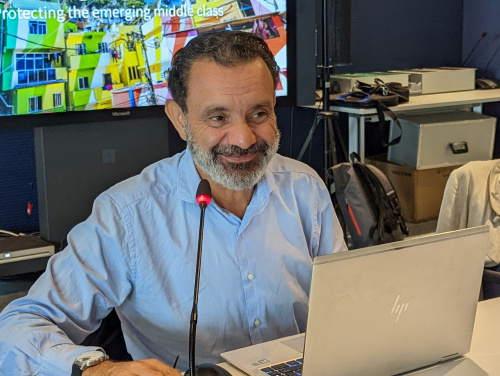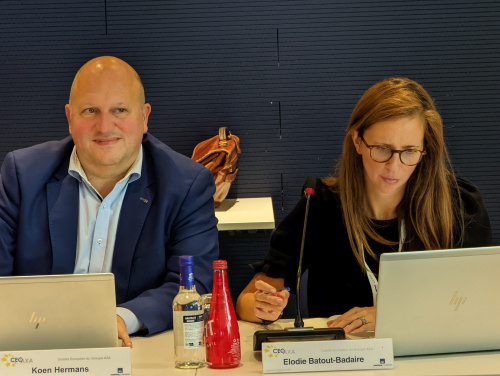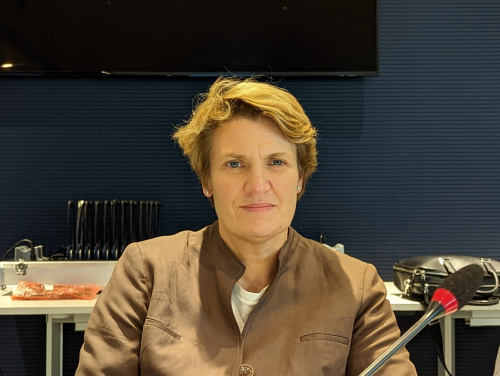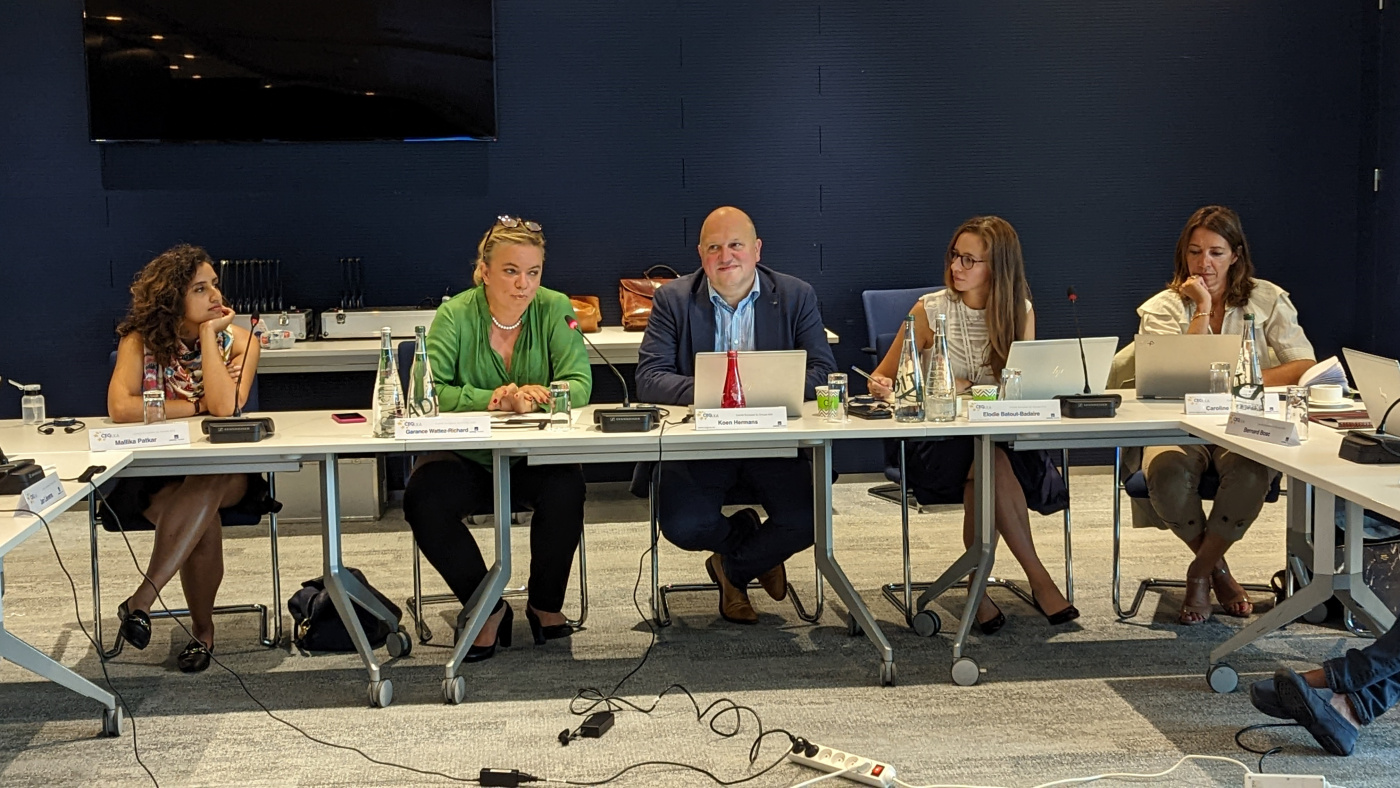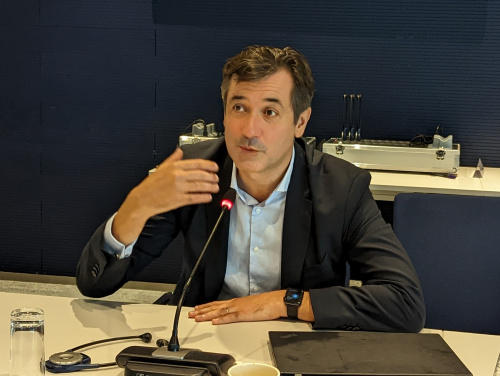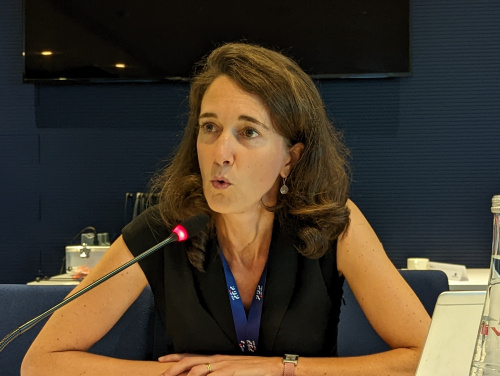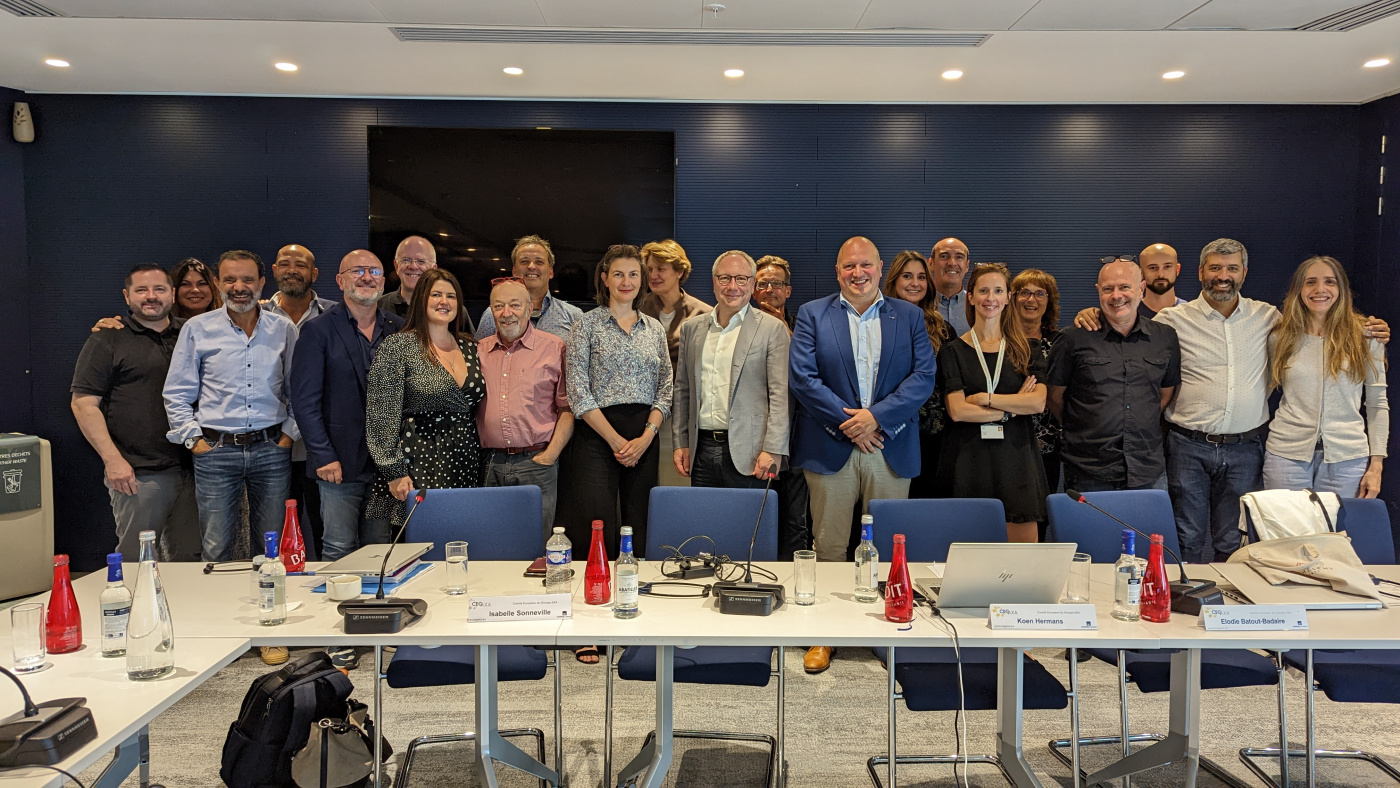Bureau meeting on 14 September 2022
04.10.2022
After the summer period, the work of the EWC resumes with the September Bureau meeting, in person, at the group's headquarters in Paris.
After an introduction by Hedi ben Sedrine, secretary of the EWC AXA and Koen Hermans, head of social relations of the group, the EWC welcomes Alexander Vollert, CEO of AXA GO and COO of the AXA group, accompanied by Elisabeth Sonneville, head of AXA GO's transformation, who came to present the project of evolution of the organisation of AXA GO.
AXA GO organisational development project
For Alexander Vollert, social dialogue is an important element in the success of any project. After a reminder of the economic and technological context, where part of the difficulties are linked to the cloud, and of the company's strategic orientations, he describes the objectives of the project.
The new organisation must be agile in order to support the projects of client entities as closely as possible while controlling costs. It must take into account the digital revolution, which is profoundly changing the way the group operates, and adapt to new ways of distributing products. Isabelle Sonneville returned to the social impacts of the simplification project, which will lead to job cuts, mainly in France as part of a voluntary departure plan. The project also contains a similar number of job creations. This development project has raised high expectations among representatives, as AXA GO is the technological heart of the group. The EWC secretariat expressed its desire to support this project by requesting a progress report in six to nine months. It also asked the group to show solidarity between entities to ensure that employees' choices were respected.
Presentation of the strategy within AXA Emerging Customers
"Too rich to be poor, too poor to be rich" is how Garance Wattez-Richard, head of AXA Emerging Customers, describes the profile of the clients of the Emerging Customers division, a developing middle class on the various continents. The idea is not to offer low-cost insurance, but rather products that are adapted to this customer segment, simple (with few exclusions), with simplified claims management and a distribution channel that is adapted to each country.
This product line has logically aroused a lot of enthusiasm from the members of the secretariat, who are sensitive to the societal aspect of such an activity. They point out that even in mature countries there are people with the profile of these emerging customers who do not have easy access to traditional insurance solutions.
Presentation of the macroeconomic context
Gilles Moec, AXA Group economist, then presented the global economic context in which AXA operates. He expects a recession at the end of 2022, beginning of 2023, in the USA and in the euro zone.
The US labour market is difficult due to the phenomenon of large-scale resignation, which is leading to wage increases and an increase in the Fed's key rate in response, as is also being done by the ECB. These monetary policies, which constrain activity, are taking place in an inflationary context which is already reducing household purchasing power. Activity is also constrained by China's health policy, which confines large parts of its society to fight against COVID19. In the euro zone, the economic impact will be dependent on the energy crisis. For the group's economist, an overly rigid inflation/wage indexation could lead to an inflationary spiral resulting in political decisions as hard as in the early 1980s. Gilles Moec believes that the urgent need is to respond to the current purchasing power shock and that it is less dangerous in the long term to do so through budget policy rather than wage indexation. With regard to greenhouse gas emissions, a short-term increase is to be expected before a longer-term decrease, as dependence on Russian hydrocarbons may lead to the development of more renewable energies.
Update on the PayAnalytics project
Ombline de Tessières, Head of Compensation International Mobility, reminds us of the group's commitment to ensure that all employees receive fair pay. In anticipation of the European directive on Remuneration Transparency, which is expected to be transposed in 2024/2025, the group is working on tools to analyse the pay gap between men and women, of course, but also in comparison with the standards of living defined in each country. Each group entity will be supported in the process of using this new methodology and this new platform.
Find the secretariat's notes:
